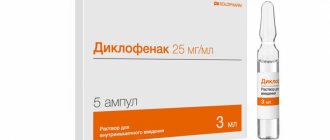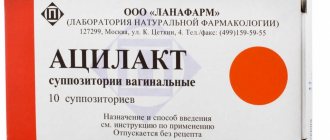In the modern rhythm of life, the problem of constipation is common. This is due to the consumption of fast food and a sedentary lifestyle.
Constipation causes harmful toxins to accumulate in the body. It is important to identify the cause of constipation and take steps to cleanse the intestines.
In this article we will tell you why constipation occurs in adults and what laxative suppositories to use for constipation.
Causes of constipation in adults
Constipation in an adult can occur due to:
- slow bowel function due to a sedentary lifestyle. This leads to difficulty in bowel movement. Office workers and older people are susceptible to this;
- improper nutrition . Snacking on the go, lack of healthy food in the diet, eating sweets and flour, fatty foods - all this provokes stool retention.
- disordered eating . Rare meals combined with overeating also cause constipation;
- stress . All human organs depend on the proper functioning of the nervous system. With severe stress and sleep disturbances, disruptions occur in the functioning of the body, in particular the intestines;
- postoperative period . The intestinal muscles are weakened and temporarily malfunction;
- weakening the urge to defecate . Restraining the urge to defecate, for example, during a busy work schedule, inhibits the reflex activity of the intestines;
- changes in nearby organs . Pregnant women often have difficulty bowel movements due to an enlarged uterus.
Features of treatment
Treatment of atonic constipation is complex. There are several approaches to drug therapy:
- motility regulators, enterokinetics, and other agents. They allow you to regulate intestinal motility by correcting the tone of the intestinal muscles.
- Drugs that indirectly affect the digestive system. This approach is used when atony is caused by other diseases. Medication support and correction can improve bowel function.
- Symptomatic therapy: laxatives for immediate relief, medications to eliminate symptoms of intoxication, painkillers. Such remedies complement the main course of treatment or other measures to normalize intestinal function.
It should be understood that basic and symptomatic treatment should be prescribed by a specialist. One of the main mistakes many people make is trying to help themselves with symptomatic treatment, laxatives or cleansing enemas, without undergoing examinations. Why is this an error? The choice of laxative should take into account the option of chronic constipation.
Doctors try not to prescribe laxatives that chemically stimulate peristalsis. Parfenov V.I. in his article explains why “the main disadvantage of the listed laxatives is the rather rapid addiction to them, the need to gradually increase the dose, significantly exceeding the permissible, and, as a consequence, degeneration of the mechanoreceptors of the colon” (Parfenov, 2013, p. 100 ).
But not only chemical laxatives can be addictive when taken over a long period of time. You should be especially careful with any senna-based laxatives, as prolonged use leads to addiction and the need to constantly increase the dosage to achieve a positive effect.
Regular use of cleansing enemas will also lead to the appearance of an inert colon - a lack of urge to defecate and worsening the problem.
Laxatives, which increase the volume of intestinal contents and osmotic pressure, are not addictive and can be used for constipation. But many patients require discontinuation of treatment due to bloating, painful cramps and other possible side effects.
Principles of effective treatment:
- competent selection of laxatives in accordance with the type of constipation;
- refusal of self-medication;
- following doctor's orders.
One of the non-addictive laxatives is Fitomucil Norm. It contains soluble and insoluble dietary fiber - the shell of psyllium seeds and the pulp of homemade plum fruits. The English drug acts gently and predictably, helping to restore normal stool. "Fitomucil Norm" does not cause side effects in the form of spasms, pain, false and repeated urges to defecate. Psyllium absorbs water, turning into a gel, which allows you to gently remove feces. Insoluble fiber stimulates intestinal motility. Long-term use of the drug is allowed in consultation with a doctor.
Symptoms and treatment of atonic constipation are always strictly individual: it is important to determine the cause of the disorder and correct it. To do this, the doctor will prescribe a comprehensive diagnosis. You may need to consult other specialists: endocrinologist, neurologist.
Types of constipation
Constipation can be acute or chronic. Acute constipation is rare. With this form, it is enough to adjust your diet: eat more fiber, vegetables and fruits, consume more water; do physical exercise. In the chronic form, the problem periodically makes itself felt. In this case, the use of laxatives is necessary.
In order to choose the right medications, it is important to determine the type of difficult stool.
There is a distinction between cologenic constipation - feces accumulate even before entering the rectum. Occurs when the intestines have weak walls, scarring or tumors. In this form, laxatives taken orally are effective.
Proctogenic constipation also happens - difficulties arise in the rectum and anus. The reasons may be weak pelvic muscles, weak sensitivity of intestinal receptors, cracks, nodes, tumors. When determining this form, rectal suppositories are prescribed.
Lifestyle correction
The treatment strategy for atonic constipation is as follows:
- regulation of stool with the help of dietary fiber and water regime (at least 1.5 liters of clean water per day);
- restoration of the lost morning defecation reflex, that is, the habit of emptying the intestines after breakfast;
- maintaining physical activity.
Doctors pay great attention to the psychological state and mood. For example, researchers Marinchuk A. T., Bogatyrev V. G. and others in their work focus on “the need to live with daily morning stool” (Marinchuk, Bogatyrev, Babieva, Koumbatiadis, 2012, p. 53).
You should adjust your daily routine so that going to the toilet in the morning does not become a problem. It is advisable to get up earlier, provide conditions without haste, so that you do not have to restrain the urge.
How to use laxative suppositories
The instructions often contain the option of carrying out the morning procedure after breakfast. The manipulation is also carried out before bedtime, if there is not enough free time in the morning.
Algorithm of actions:
- Take a shower. With clean hands, remove the suppository.
- Choose the dosage according to the instructions. One candle is usually enough for an adult.
- Lie on your side with your knee bent. Carefully introduce the product with the pointed end first.
- It is advisable to lie down for 15 minutes. Some instructions require active movement. The effect occurs within 10-60 minutes.
- If you experience a strong urge to defecate, empty your bowels.
How long does it take for constipation suppositories to work?
The effect of using suppositories for constipation develops at different times. This depends on the effect the active component has on the body, as well as on the composition of the suppository:
- After 5-10 minutes, Glycerin suppositories, RectActiv, Microlax begin to act. They should be used in a place where immediate defecation is possible.
- After 30 minutes, the effect of using Guttalax Express and Dulcolax suppositories develops.
- After 15-60 minutes, Bisacodyl suppositories begin to work.
Advantages and disadvantages of laxative suppositories
Pros:
- laxatives in the form of suppositories, unlike oral medications, do not irritate the gastrointestinal tract;
- Rectal suppositories work faster because they are inserted directly into the rectum. There is no need to wait for the medicine to be digested and take effect;
- do not stretch the intestinal walls;
- do not cause a feeling of bloating and distension;
- suppositories gently improve bowel function;
- most rectal suppositories are allowed for pregnant women;
- work for different types of constipation;
- some products can be used for a long time;
Minuses:
- psychological discomfort;
- the presence of many contraindications;
- not always convenient to use;
- possible damage to the mucous membrane;
- have no effect if the problem is located above the rectum;
- Most rectal suppositories are addictive
Exercise and physical activity
It is important to increase physical activity: make it a habit to take morning and evening walks, jogging, play sports to the extent physically possible, and swim. If atonic constipation is the result of an injury or a disease of the musculoskeletal system that requires long-term immobilization, then it is important to consult a doctor.
The specialist will develop an exercise program individually, taking into account capabilities and general health. Constant bed rest and complete abstinence from exercise are not indicated in almost any case, except for the most severe ones, so movement is a necessary component of improving the functioning of the gastrointestinal tract.
Exercises such as “bicycle”, leg lifts, and walking are useful. If it is impossible to perform the exercises, you should resort to a kind of passive activity - do a light abdominal massage. Movements should be soft, careful, clockwise.
Inexpensive laxative suppositories
Glycerin suppositories
Glycerin suppositories are one of the most affordable and effective fast-acting suppositories. Prescribed 1 piece per day after breakfast.
Should be stored in the refrigerator. The drug is suitable even for young children and the elderly. During pregnancy, use after consultation with a doctor due to possible uterine tone.
The suppositories are safe to use; the only side effects listed are an allergic reaction.
Glycerin in combination with stearic acid and sodium carbonate acts immediately, but should not be abused to avoid irritation of the mucous membrane.
Dissolving in the rectum, it has a liquefying effect on hardened feces and greatly facilitates the cleansing process.
Within 15 minutes the intestines are cleansed. If this does not happen, then intestinal obstruction may develop. If you experience abdominal pain or fever, you must call an ambulance.
The price in Russia is 160-220 rubles.
Sea buckthorn candles
Despite the fact that the remedy is anti-hemorrhoid, sea buckthorn suppositories are also the most affordable among medications for constipation.
Prescribed 2 pieces per day - after the morning meal and before bed.
If there are regular difficulties in bowel movements, suppositories are placed for up to 10 days. In this case, the drug will help get rid of the symptoms, but will not eliminate the true cause.
Sea buckthorn oil has a softening, healing, antimicrobial effect. Natural candles are safe for newborns, pregnant women, and the elderly.
They act gently, so bowel cleansing will not happen immediately. Contraindicated in acute hemorrhoids. Allergic reactions are possible. It should be taken into account that orange suppositories leave marks on bedding and underwear.
The price in Russia is 70-110 rubles.
Papaverine suppositories
Suppositories are used as an anesthetic and laxative.
Papaverine eliminates spasms and frees the intestines. It affects everyone individually, the effect may not occur immediately. One candle per day is enough.
Contraindicated in the presence of glaucoma, hypersensitivity to components, liver failure.
Use with caution during pregnancy, old age and childhood. Prescribed only by the attending physician, because there are contraindications.
Cost 60-110 rubles.
Gas-forming candles
Calciolax are gas-forming suppositories containing cocoa butter and sodium bicarbonate. Effectively fights proctogenic constipation. They help when the cause of constipation is periodic suppression of the urge to defecate.
Prescribed once a day, no more than 3 days in a row. Can be used for chronic constipation. There are many contraindications: intestinal obstruction, anal fissures, itching, the presence of tumors. Should not be used by pregnant women or small children.
The price in Russia is 280-360 rubles.
Bisacodyl is a fast-acting laxative that activates intestinal motility. 1 piece per day is enough, twice use is acceptable. Appointed from the age of 14 years.
Prolonged use is prohibited. Contraindicated in severe intestinal diseases. It is not prescribed for chronic constipation.
Side effects manifest themselves in the form of colic, diarrhea, allergies, and dehydration.
Rarely used for pregnant and lactating women, contraindicated for infants.
The price in Russia is 50-100 rubles.
Dulcolax is a French drug with the active ingredient bisacodyl. Promotes the production of mucus in the intestines, normalizes peristalsis. Apply rectally once a day, 1 piece. It acts instantly, but with frequent use it reduces intestinal tone, which contributes to further constipation.
Contraindicated in acute inflammation in the gastrointestinal tract. Allowed for children, pregnant women and the elderly. Works great even in severe cases of constipation.
Price in Russia from 200 rubles.
Ferrolax - gas-forming candles. Iron lactate stimulates the process of hematopoiesis, which has a beneficial effect on the digestive organs. This is a new generation medicine. After use, the natural process of emptying is restored. Refers to fast-acting laxatives.
Used for constipation associated with suppression of the urge to defecate. It works due to the formation of carbon dioxide in the intestines, which removes fecal matter.
The price of the medicine in Russia is from 50 rubles.
With rhubarb - candles contain sodium bicarbonate and rhubarb extract. A reaction of bicarbonate with an acidic substance occurs after the product has completely dissolved. Rhubarb extract has a positive effect on the digestion process and has a laxative effect. Normalizes water balance, which promotes normal bowel cleansing. The natural component is gentle. Good for older people.
Price 100-230 rubles.
Evacue is a rectal suppository consisting of polyethylene glycol, sodium bicarbonate and potassium bitartrate. They act quickly and effectively. Active substances produce large amounts of carbon dioxide. Promotes contraction of smooth muscles, which leads to complete cleansing.
Use 1 suppository once a day. In case of individual intolerance, allergic reactions are possible. Appointed from age 12. It can be used in old age if there are no contraindications.
Price in Russia from 400 rubles.
Homeopathic medicines
RectActive is a product of plant origin. It is based on dry horse chestnut fruits and glyceride fatty acids, which strengthen the intestinal muscles.
To completely restore normal bowel function, a month-long course of treatment is required. Helps with chronic and senile constipation; problems associated with a sedentary lifestyle, climate change and nutrition. Suppositories normalize peristalsis. Side effects include burning and allergies.
Prices in Russia start from 300 rubles.
Candles with chestnut extract are broad-spectrum candles. They have a tonic effect on the intestinal vessels, produce a laxative effect, and are suitable for the prevention of hemorrhoids. Chestnut extract activates blood circulation in the intestines; relieves inflammation, pain, normalizes peristalsis.
Prescribed for occasional constipation. The candles are safe to use as they contain natural ingredients. They only affect the large intestine and small intestine. The laxative is used in a course of 1 pc for a month. in a day. Restores intestinal motility, normalizes bowel movements. Prohibited for use by pregnant women.
Cost 120-250 rubles.
Irritating rectal suppositories
Glycelax is an inexpensive suppository that is great for occasional constipation. It is important to follow the dosage according to the instructions. Suppositories lubricate and soften hardened stool. Improves bowel function within 6-12 hours. Apply in the morning after breakfast. The maximum course of treatment is 7 days. Glycelax is often prescribed to older people.
Cost 100-230 rubles.
Relief - has an anti-inflammatory, vasoconstrictor and hemostatic effect. Has a healing effect on the rectum and anus area. Used for anal fissures, hemorrhoids. If necessary, the drug can be used for a long time, but there are many side effects. Contraindicated during pregnancy and breastfeeding.
The price in Russia is 300-450 rubles.
Belladonna suppositories - Belladonna or belladonna relieves inflammation and spasms. Eliminates constipation and treats hemorrhoids. Thanks to alkaloids, belladonna extract reduces the intensity of pain. Suppositories with this component have an anti-inflammatory and laxative effect; antispasmodic effect.
Prescribed after operations. They have a number of contraindications. Alkaloids are prohibited for heart disease, glaucoma, cholelithiasis, and intestinal atony.
Cost 60-80 rubles.
Candles with ichthyol - a substance obtained by distilling oil shale from sulfur. The laxative suppository also contains beeswax and plants. They have anti-inflammatory, healing, disinfectant effects, and relieve spasms. Applicable only to those over 18 years of age.
The drug cannot be used if you are allergic to ichthyol. Not compatible with iodine-containing products or alkaloids. An enema is recommended before using suppositories.
The price in Russia is about 100 rubles. Prescribed for children and adults.
Microlax - microenema. The composition contains glycerin, sorbic acid, distilled water. The components effectively soften hardened fecal matter, eliminating congestion in the rectum. It is used for long-term constipation and when it is necessary to soften stool after surgery. Prohibited for allergies to components, intestinal obstruction, gastrointestinal bleeding.
They cost 300-370 rubles.
In what cases will glycerin suppositories help?
The instructions for glycerin suppositories contain a list of conditions for which they are prescribed. The main indication is difficult defecation or its absolute absence, caused by functional disorders of the gastrointestinal tract, old age/childhood, and psychological problems.
For preventive purposes, suppositories are prescribed to patients after surgical interventions and for pathologies that require the elimination of physical stress.
Including:
- anorectal abscess;
- anal fissures;
- hemorrhoids complicated by blood clots and pain;
- narrowing of the rectal lumen;
- suffered myocardial infarction.
Suppositories with glycerin can be used in preparation for rectal surgery, to prevent constipation after surgery, to avoid constipation after childbirth, and also before examining the rectum with instruments or x-rays.
Side effects
Unlike tablets and suspensions, side effects from rectal suppositories are less common. However, allergic reactions are possible:
- itching, burning in the anal area;
- pain and cramps in the lower abdomen;
- nausea;
- diarrhea;
- irritation of the mucous membrane;
- dehydration;
- addiction;
- washing away beneficial bacteria.
Nutrition/diet
Meals should include foods rich in plant fiber and contain fermented milk products. There should be more plant foods than animal products. This will help improve the functioning of the digestive tract, increase the volume and facilitate the excretion of feces. Bran is useful - separately or as part of special bread. These are natural laxatives, just like vegetable oils.
But you should remember: bran is a source of insoluble dietary fiber, the consumption of which in large quantities can provoke increased constipation and increased gas formation. If you are prone to constipation, it is better to pay attention to products containing predominantly soluble dietary fiber.
From the diet you need to exclude foods that thicken the stool and cause increased gas formation:
- potato;
- legumes;
- white bread, pastries;
- spicy dishes;
- smoked meats;
- canned food and marinades;
- chocolate;
- crackers;
- peeled rice, etc.
The daily menu can be based on lean meats, poultry, fish, cereals (except rice and semolina), vegetables, and it is better to steam them. Can be used boiled. Dried fruits have proven themselves to be excellent, especially dried apricots, prunes, and raisins. You can use them on their own or make compotes from them.
Try to limit yourself to six grams of salt per day, otherwise the likelihood of developing fluid retention increases, and swelling is often accompanied by constipation.
It is important to consult a doctor first, especially for people with chronic diseases. The specialist will give precise recommendations regarding the diet.
Useful tips for preventing and combating constipation
- After waking up, half an hour before your morning meal, drink a glass of water. This is necessary to prepare the stomach for digestion;
- Drink more fluids during the day - water, fruit drinks, compotes, herbal teas;
- It is useful to drink kefir before bed. This allows the intestines to prepare for the working day;
- Regularly eat fruits and vegetables, especially beets, prunes, cabbage;
- Eat small portions several times a day, avoid late meals;
- To prevent constipation, you should exclude flour, sweet, fried, and smoked foods from your diet;
- Go to the toilet on time;
- Move more.
If you have problems with bowel movements, you should consult a doctor to determine the cause. Self-medication, as a rule, only aggravates the situation. To prevent bowel difficulties, proper nutrition, a healthy lifestyle, and try to avoid stressful situations are important.
Is it possible for pregnant women and children
The drug is contraindicated for women during pregnancy due to the risk of stimulating the uterus and provoking miscarriage or premature birth.
During lactation, it is allowed as prescribed by a doctor and when assessing the possible risks for the child, since no studies have been conducted on the penetration of glycerol into breast milk.
Children from birth to three years old, with the consent of the pediatrician, are allowed to administer ½ suppository for children once a day. At the age of 3-7 years, a suppository for children in full can be administered once.
Children starting from school age are prescribed suppositories for adults.









